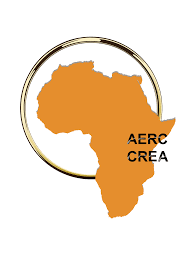
The Call for Country Case Study Proposals
This Call is for Research Proposals to undertake in-depth country studies to inform policy
makers and development practitioners on Human Capital Development in Africa from the viewpoint of individual countries and/or sub-regions (or group of countries).
Under this project, AERC will commission 10-15 studies that will help build greater policy support for human capital at the country level as well as influence human capital policies.
The project prioritizes studies on the following seven (7) Sub-Saharan African countries:
Nigeria, Ethiopia, Kenya, Uganda, Burkina Faso, Senegal, and Madagascar. To that
end, proposals should identify and briefly describe the datasets to be used (see below).
The country case studies will focus on, but are not limited to the following themes:
1. Human Capital Formation and Its Determinants (i.e., fertility, education and
skills, health)
⮚ Understanding Human Capital Formation and its Determinants
⮚ Measuring and Interpreting Inequality both Within and Across Countries
⮚ Family Economics and Human Capital in the Family
⮚ Health human capital and economic growth in Africa
2. Human Capital Drivers and Consequences (Population, Skills Acquisition,
Migration, and Impacts)
⮚ Measuring and Assessing Skills
⮚ Human capital flight: stratification, globalization, and the challenges to
tertiary education in Africa
⮚ The human resource crisis in health services in Africa
⮚ Labor market implications of migrations
⮚ Digitization: Promise and Peril of Infinite Bandwidth for African Human
Capital
3. Human Capital Depletion (Health and longevity, Investment/Financing
quantum)
⮚ Health and Schooling Investments in Africa
⮚ Financing Human Capital Investment
⮚ Macroeconomic stability, policy and regulatory consistency, sector reforms,
and human capital development
⮚ Climate change and human capital
⮚ Climate Change, Disease and Gender Gaps in Human Capital Investment
⮚ Human capital formation and foreign direct investment
⮚ The Cost of HIV/AIDS and Disease on Human Capital Investment in Africa
4. COVID 19 and Human Capital Development
⮚ Covid 19 Impacts on Human Capital Development (Macro, Micro, Gendered)
⮚ Vulnerability of African Economies to COVID-19 and human capital
development
⮚ Human capital development within COVID-19 Economic Recovery
D. Proposal Requirements:
Each proposal should not exceed 15 pages with 1.5 spacing. The proposal should include
the following:
a) Introduction/Objective (s): A well-motivated introduction clearly stating the
specific objectives of the study and country(ies) of focus. We are interested in
proposals with original and innovative ideas, including ones that can challenge
the dominant global thinking and its relevance to contemporary African
conditions, are of policy relevance (even if this involves quite radical shifts from
the “business as usual” policies), and can add value to the existing global
knowledge by bringing the depth and complexity of contextual knowledge of
country conditions to bear.
b) Methodology and Data: In addition to the usual statement detailing how the
research objectives are to be achieved, researchers intending to investigate
specific issue(s) drawing on country data must demonstrate availability and
access to the requisite data required for the study. We are interested in
applications proposing innovative use of quantitative, qualitative, or mixed
methods development if they can demonstrate practical potential to address
programmatic and development needs.
c) Expected Outputs: A high quality, policy relevant and publishable research
paper to be approved by independent peer reviewers. A policy brief of no more
than 5 pages should also be produced.
d) Statement of Qualification and Current CV(s) for each author (include in the
CV: nationality, gender, and full contact details). Women are particularly
encouraged to apply.
e) Work Programme and Timeline: A brief description of the activities and
timeline needed for each activity. Total duration of the study should not exceed
12 months
f) Budget: Estimated expenditure by major line items, e.g., research assistance;
travel; computer time; secretarial support; honorarium etc. Total budget should
not exceed US$15,000.
E. Submission Requirements and Key Dates:
The submissions must consist of a 15-page proposal with all the requirements stipulated in D above as well as the researcher’s most recent Curriculum Vitae (CV): the CV should
not be more than 5 pages and should highlight education levels, research experience, publications, and other information relevant to this call. Additionally, the biographical section of the CV must include the researcher’s nationality, gender, and full contact details. Where the proposed study will involve more than one researcher, the CVs of all researchers must be included as part of the submission.
The researcher or research teams should also demonstrate expertise on the country selected for the study, either through research/publications or team composition.
Suitably qualified women are especially encouraged to apply.
The lead researcher is responsible for ensuring that a complete application is submitted to the AERC. Incomplete applications will not be accepted.
Project Timelines
This call for proposals is the first stage in the application process. Researchers who submit applications that meet the necessary criteria in this first stage will be invited to present their proposals in an inception workshop. Those that have potential will be granted up to USD$15,000.
The breakdown of the timeline is as follows:


Expressions of Interest.
Complete proposals should be submitted to:
● AERC Director of Research at cresearch@aercafrica.org with a copy to
cmutanu@aercafrica.org
● The subject of your email should read “AERC- Human Capital in Africa (HCA) –
Country Case Studies -proposal submission”.
Click on the link below to download the complete call
AERC-BMGF-HC-Call-for-ResearchProposals_HCA-CCS-Final-27July2021.doc




